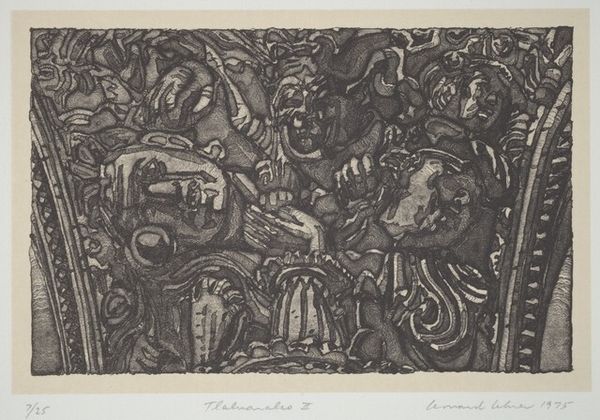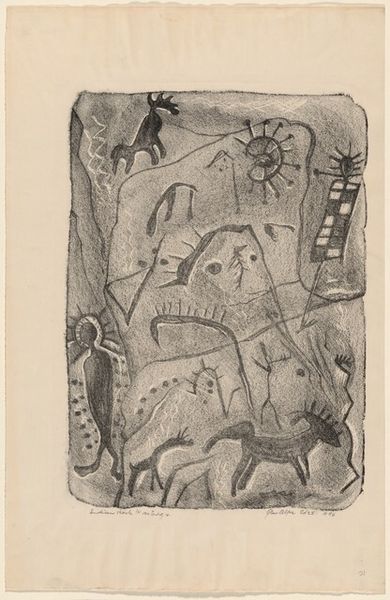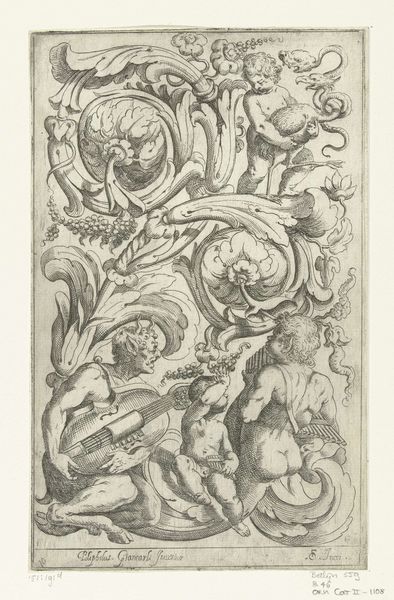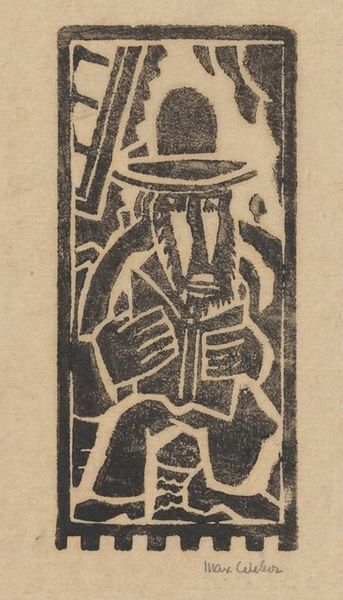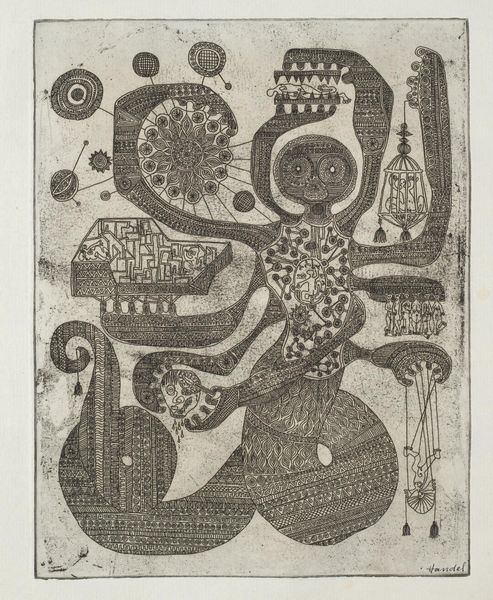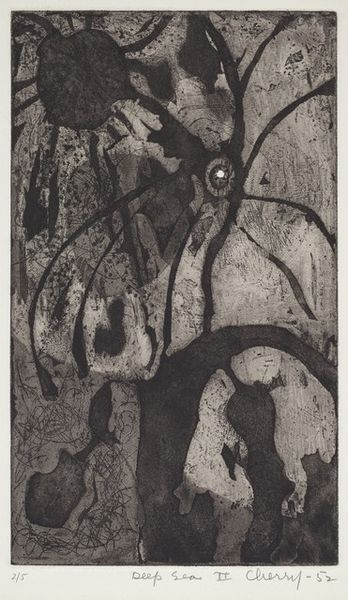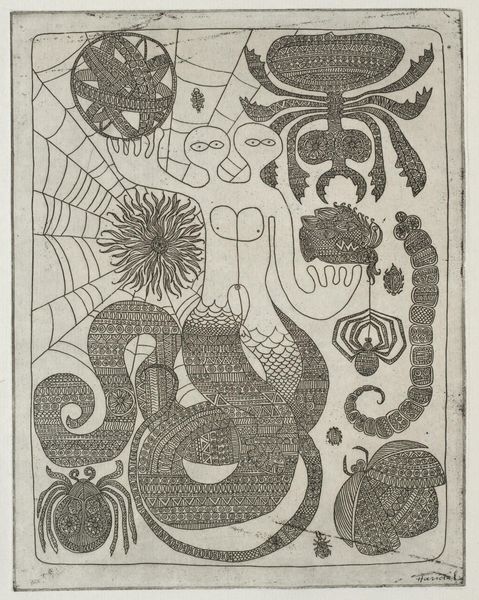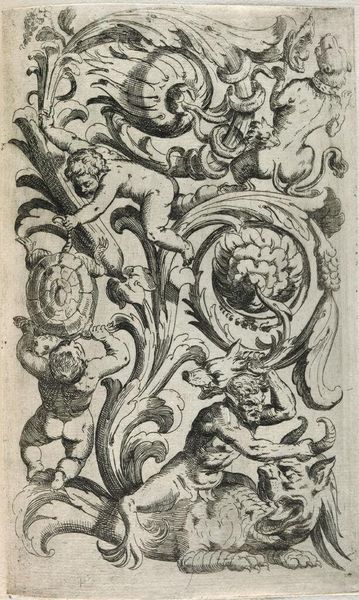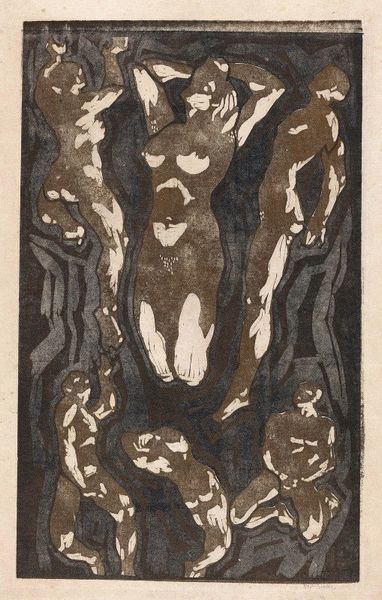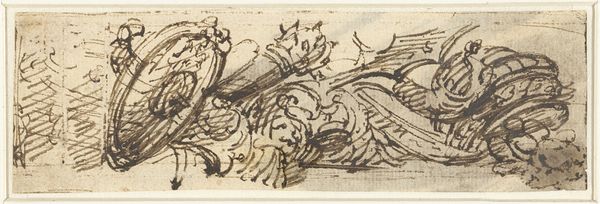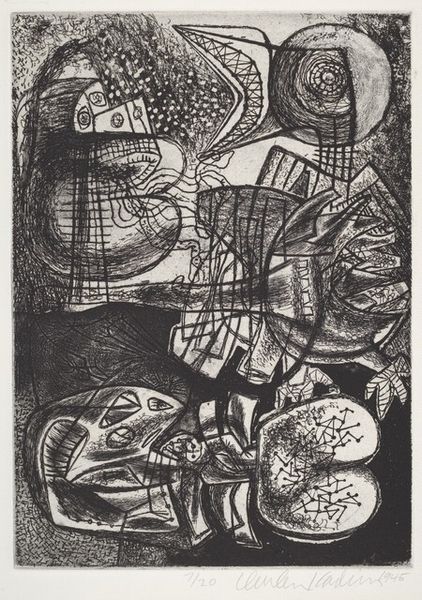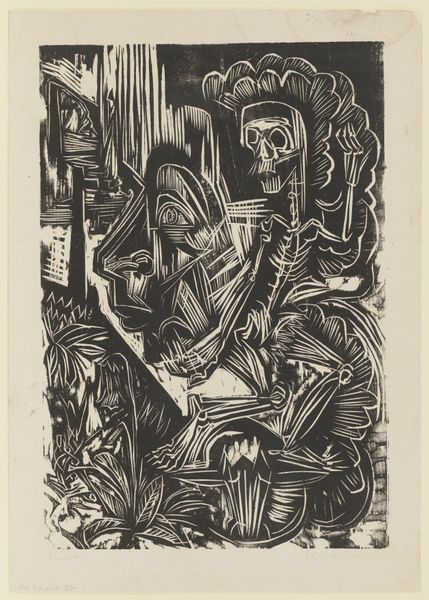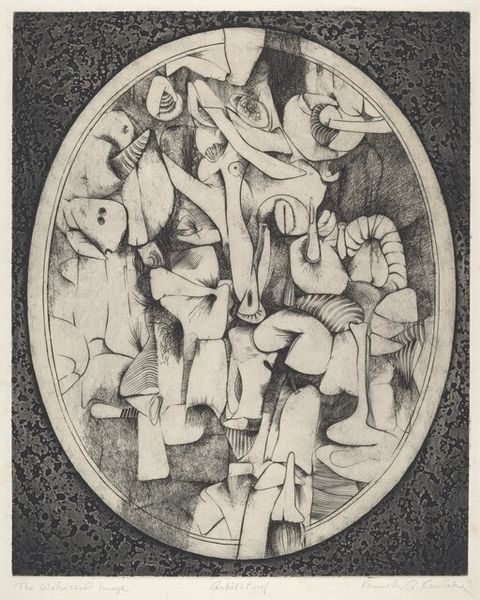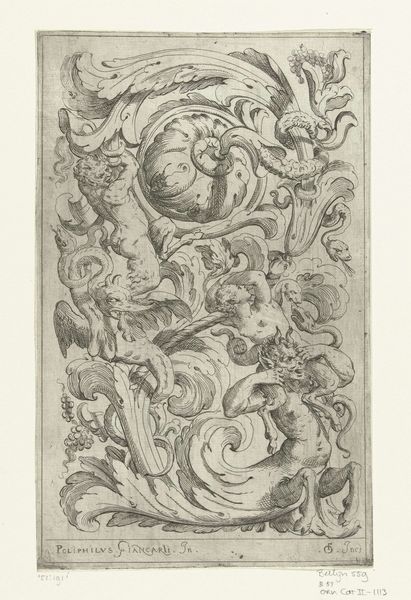
drawing, pencil
#
drawing
#
art-nouveau
#
figuration
#
pencil drawing
#
geometric
#
pencil
#
line
#
symbolism
#
portrait drawing
Dimensions: height 308 mm, width 171 mm
Copyright: Rijks Museum: Open Domain
Editor: This is "De Elfenzetel," or "The Elven Seat," a pencil drawing made in 1918 by Willem Arondéus. It’s giving me strong art nouveau vibes. The repeated rounded forms almost feel like they’re vibrating with some hidden energy. What do you make of it? Curator: Indeed. The repetition, that striving for the infinite through pattern, points directly to symbolism. Look at how Arondéus uses geometric forms, not merely as decoration, but to build a visual language. The seated figure at the base, shrouded in cloth, sits within a womb-like alcove formed of nature. It’s a powerful visual metaphor; what do you think it signifies? Editor: Hmm, perhaps a return to nature? Or the potential for rebirth? I can almost feel a comforting silence. Curator: Precisely. The "elven seat" could represent a place of profound introspection, a site where one connects with deeper, perhaps subconscious, aspects of being. This was created toward the end of the First World War; can we speculate that this elven seat might offer some form of refuge from the very real horrors experienced during the war? Editor: That makes sense! So the figure could also represent hope and spiritual escape? Curator: Absolutely. These symbolic landscapes become incredibly important during times of turmoil. Arondéus seems to offer an alternative realm, where geometric harmony and figures meld into an introspective space, resonant with the desire to escape devastation, to discover a sense of belonging and peace. It feels intensely psychological to me. Editor: I see it differently now, thanks to your insights on symbolism and the context of its creation. I am no longer thinking about "elves" but the need to create peaceful realms!
Comments
No comments
Be the first to comment and join the conversation on the ultimate creative platform.
